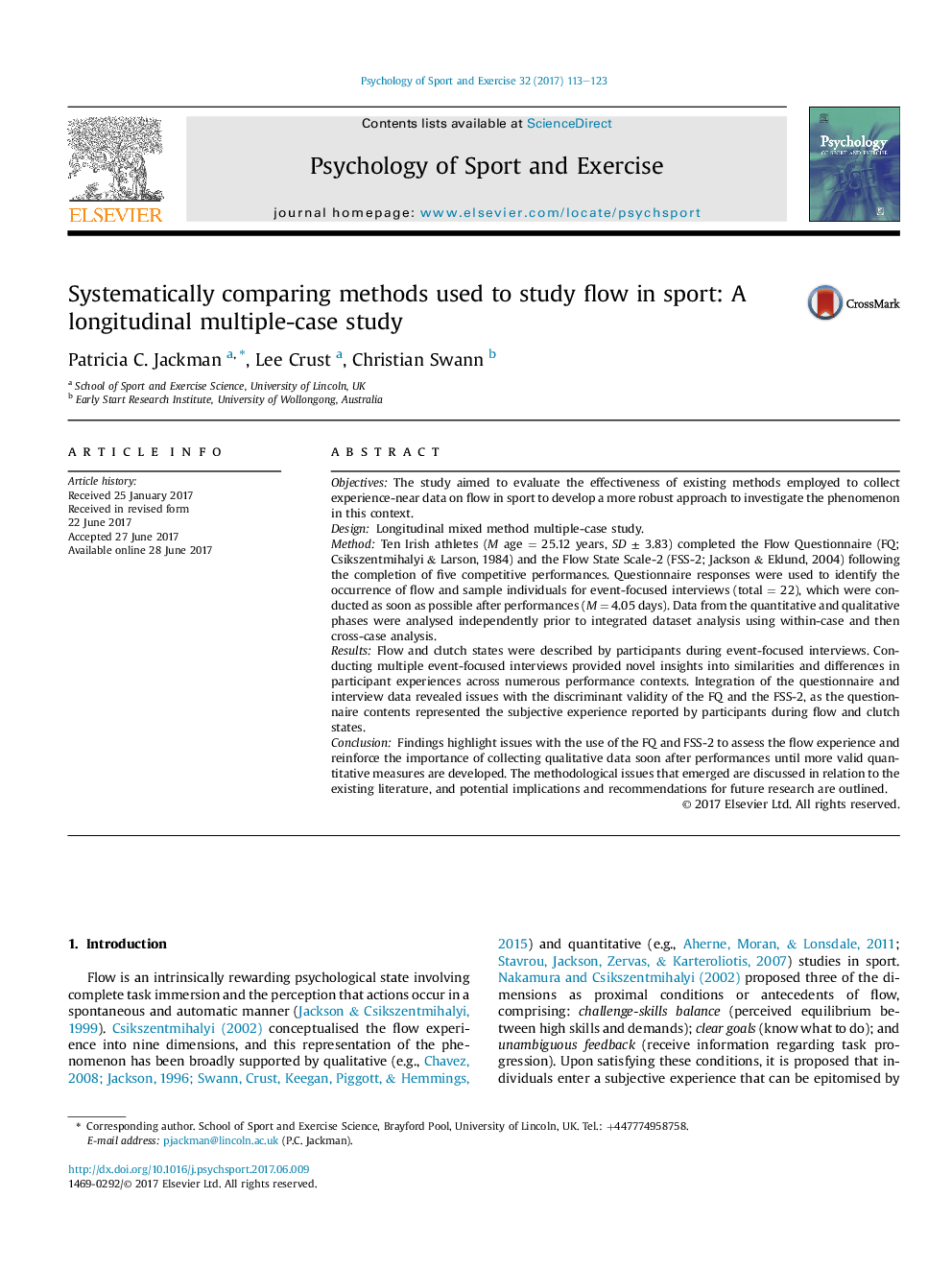| کد مقاله | کد نشریه | سال انتشار | مقاله انگلیسی | نسخه تمام متن |
|---|---|---|---|---|
| 5036474 | 1472095 | 2017 | 11 صفحه PDF | دانلود رایگان |
- A longitudinal mixed method multiple-case study design was employed to evaluate the effectiveness of methods to study flow in sport.
- Questionnaires and event-focussed interviews were conducted soon after competitive performances.
- Participants described the psychological states of flow and clutch performance states during event-focused interviews.
- Integrated dataset analysis revealed discriminant validity issues with the questionnaires, as the contents captured flow and clutch states.
ObjectivesThe study aimed to evaluate the effectiveness of existing methods employed to collect experience-near data on flow in sport to develop a more robust approach to investigate the phenomenon in this context.DesignLongitudinal mixed method multiple-case study.MethodTen Irish athletes (M age = 25.12 years, SD ± 3.83) completed the Flow Questionnaire (FQ; Csikszentmihalyi & Larson, 1984) and the Flow State Scale-2 (FSS-2; Jackson & Eklund, 2004) following the completion of five competitive performances. Questionnaire responses were used to identify the occurrence of flow and sample individuals for event-focused interviews (total = 22), which were conducted as soon as possible after performances (M = 4.05 days). Data from the quantitative and qualitative phases were analysed independently prior to integrated dataset analysis using within-case and then cross-case analysis.ResultsFlow and clutch states were described by participants during event-focused interviews. Conducting multiple event-focused interviews provided novel insights into similarities and differences in participant experiences across numerous performance contexts. Integration of the questionnaire and interview data revealed issues with the discriminant validity of the FQ and the FSS-2, as the questionnaire contents represented the subjective experience reported by participants during flow and clutch states.ConclusionFindings highlight issues with the use of the FQ and FSS-2 to assess the flow experience and reinforce the importance of collecting qualitative data soon after performances until more valid quantitative measures are developed. The methodological issues that emerged are discussed in relation to the existing literature, and potential implications and recommendations for future research are outlined.
Journal: Psychology of Sport and Exercise - Volume 32, September 2017, Pages 113-123
